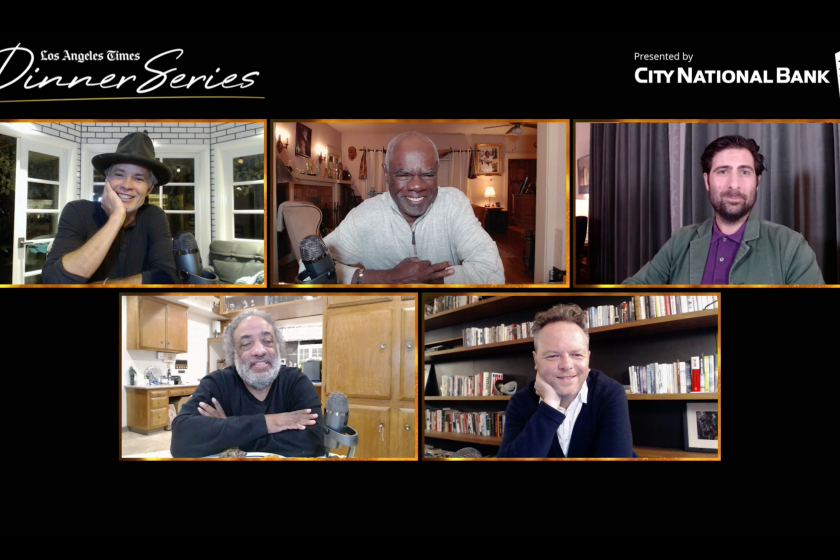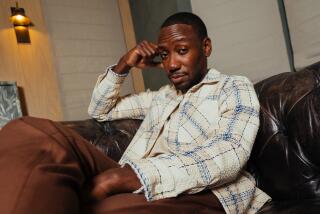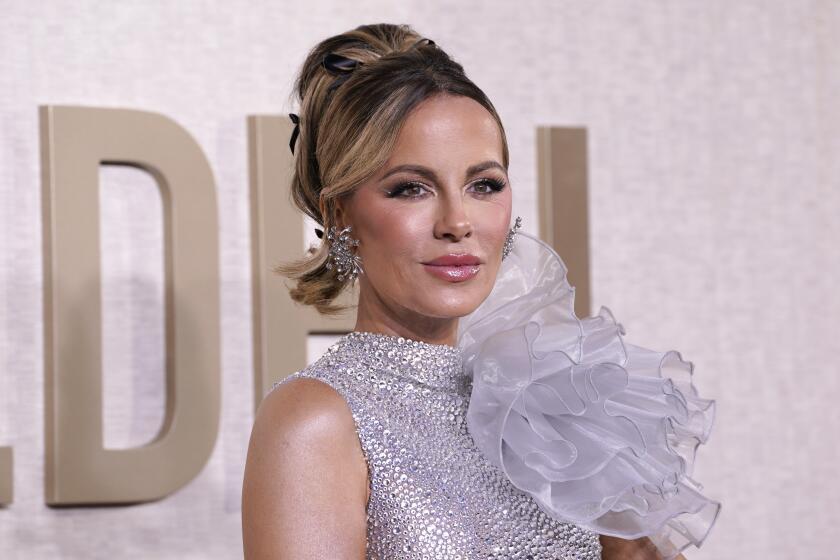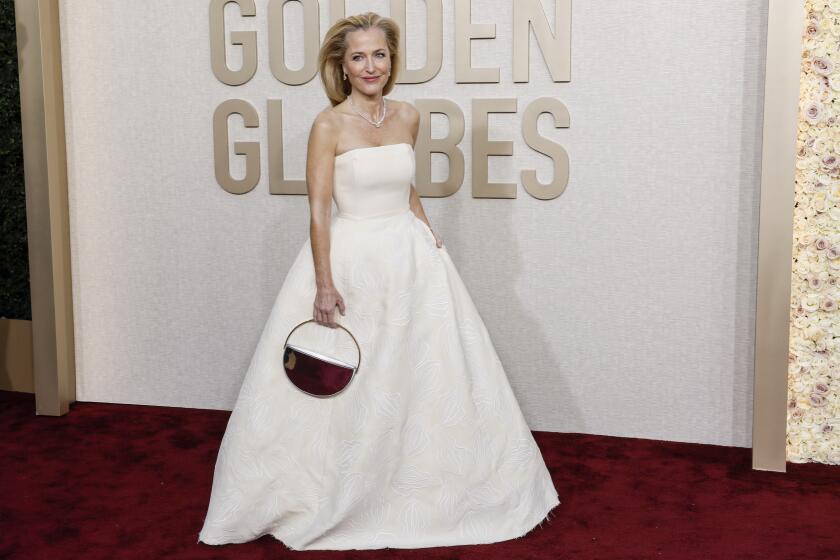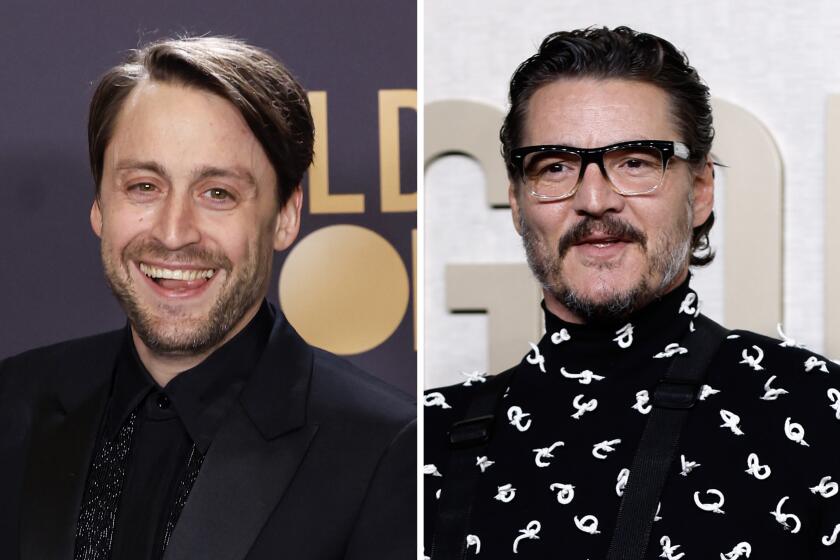Chameleonic Jessie Buckley brings the bad to ‘Fargo,’ the cryptic to ‘Ending Things’
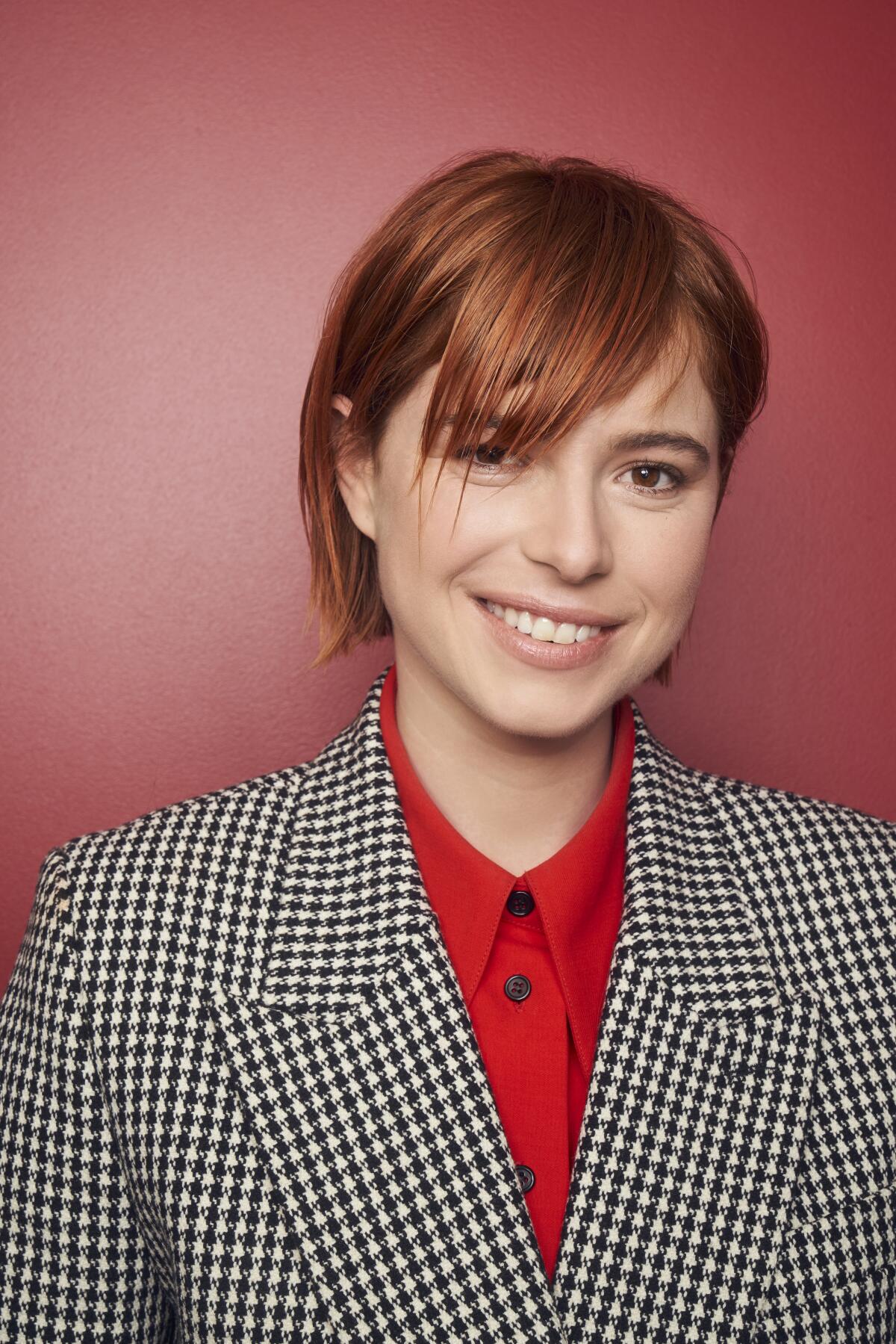
For Irish actress Jessie Buckley, picking up a dialect is like learning a piece of music. “Over time, it just kind of sinks in,” says Buckley, who obsessively listened to recordings of native Minnesotans talking before flying from London to Chicago, which doubles for Kansas City, for Season 4 of FX’s “Fargo.”
In it, she steals every scene as Oraetta Mayflower, a hospital worker with an upper Midwestern patois, a brittle smile and a habit of murdering her patients. Once she tried to poison her neighbors by baking them a pie spiked with a vomit-inducing syrup.
Oraetta is about as far away as you can imagine from the young woman she plays in Charlie Kaufman’s cryptic “I’m Thinking of Ending Things,” now streaming on Netflix. On a road trip with her boyfriend, Jake (Jesse Plemons), Buckley’s character is studying poetry. Other times, it’s quantum physics. Her name keeps changing. It’s a movie that eludes traditional explanation, which might be why Buckley gets so charmingly tangled up talking about her approach to the role.
“You’re just trying to be present, right? You bounce off each other and figure something out which is either spoken or not spoken.…” she says, then gives up and bursts out laughing. “’What is she talking about?’ you’re probably thinking.”
Let’s start off with your “you betcha” accent for “Fargo.” Did you try it out on locals?
Are you asking me if I walked around Chicago like a lunatic nurse? I’d have been taken away in a straitjacket before production even started. [Laughs]
You worked with a movement coach to come up with Oraetta’s peculiar walk. What did that involve?
From the moment I read her, there was something birdlike about her, a rhythm. So we went into a rehearsal studio and just talked. In my head was this idea of a female grim reaper, what that might look like. Then I read that a sparrow is actually a bad omen. So we started looking at videos of sparrows. Then I walked around the room for about two hours doing mad things, talking to myself, and that’s what came out.
Due to the pandemic, “Fargo” halted production in March. What was it like to return in August and finish?
I was so excited to be back. I really missed it. It felt like my first day of filming ever. The lengths people were going in order to make art and commit to being together when we’re all so vulnerable? It was such a joy to be able to do it. It’s really humbling. It gives you faith in humanity. This isn’t just about you. This is about everybody, and you have to make a contract with everybody that you’re going to take care of them. I really, genuinely mean that.
We sat down to a virtual dinner with creator Noah Hawley and the cast of “Fargo” to discuss Season 4 and America’s enduring affection for criminals and crooks.
Your military bob in “Fargo.” The crispy ‘80s perm in “Ending Things.” When did you realize that hairstyles really change the contours of your face?
I’ve always had so much hair. I’d shave it off if I could. I have huge, natural, curly, wild, beastly hair. I look like a wild Irish woman most of the time. A casting agent once told me, “Tame the beast,” when I came into an audition. I think that’s probably what happened. But it’s fun to see yourself in different shapes, sizes, hair and wigs.
Much of “Ending Things” takes place in a car. What’s it like to spend two weeks on the passenger side of the same tiny set?
It didn’t feel like a long time. The budget was really small, and there was lots to do. We’d only have one or two takes most times, because there were lots of different angles. Given the space limitations, Charlie and [cinematographer Łukasz Żal ] were always trying to find something particular and unique to the limitations of that world.
You’re back home in London filming a modern-day production of “Romeo and Juliet” with Josh O’Connor. How does that work in the middle of lockdown?
We test every two days; we all wear masks. We’re in a kind of a bubble.
We have the luxury of being in the National Theatre, which has dressing rooms and nobody else in the building. There’s no audience. It’s more like a film set. We’re at ground zero, so you see the innards of the theater in its barest form: the ropes, the lights, and through our imagination, the world of Verona becomes more realized.
You’ve had to go into preproduction quarantine three times this year. Talk about sitting in a hotel room alone for two weeks.
Usually you fly in and you’re shooting two days later. But [with quarantine] you have time to sink in, rest your body, your mind. But it’s also hard. You’re so hungry to get out, and when you do, you’re so happy. You are just in love with everybody on the other side of that door. [Laughs] And I mean that literally.
More to Read
From the Oscars to the Emmys.
Get the Envelope newsletter for exclusive awards season coverage, behind-the-scenes stories from the Envelope podcast and columnist Glenn Whipp’s must-read analysis.
You may occasionally receive promotional content from the Los Angeles Times.
